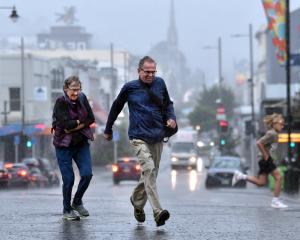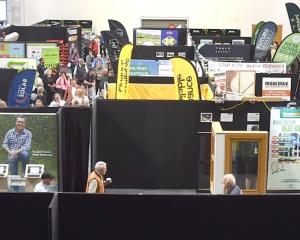A Dunedin secondary school teacher says the new collective agreement makes good progress but looks forward to a continuing discussion with the government.
Secondary teachers have overwhelmingly ratified the settlement of a new collective agreement.
Post Primary Teachers Association (PPTA) Otago regional chairwoman and Logan Park High School teacher Amanda Ellwood was pleased to see the progress made on many of the items in the claim.
She said she was especially glad to see the improvements made for pro-rata non-contact time for part-time teachers.
Last week, the government accepted an arbitration panel's recommendation to increase secondary teacher pay by about 14.5%.
The change adds $680 million to the $3.76 billion set aside by the government for settling teacher and principal pay agreements.
Education Minister Jan Tinetti said it meant beginning teachers would get nearly $10,000 a year more on top of a $7210 lump sum payment.
However, the arbitration panel had placed an expectation on both the PPTA and the government to continue discussions about items on which they did not have the time to make a decision.
Among other items, this included the value of management units and cultural liaison roles, Ms Ellwood said.
"We are looking towards future discussion with the government about the importance of including these cultural liaison roles permanently in all schools for the benefit of our school whanau."
Ms Ellwood said secondary teachers were also working through a pay equity process — similar to the one nurses undertook — which should reach a conclusion within the next two years.
PPTA acting president Chris Abercrombie said although there was still more work to be done, he was delighted PPTA members had shown such strong support for the new collective agreement.
"Members’ collective, determined and sustained action this year ensured that we received a much improved offer via arbitration than what we were offered in negotiations.
“There are still significant issues around secondary teacher recruitment in particular that need to be addressed, but today is for celebrating."
He said teachers could now get on with the business of teaching and learning in a settled environment which was something they had wanted to do for a long time.
The arbitration process had highlighted a need to find better and more productive ways of addressing teachers’ concerns and setting pay and conditions, Mr Abercrombie said.
"A different approach is required to setting salaries rather than the current ‘boom and bust’ process which produces periods with pay rates falling relative to other groups and a build up of pay and supply pressures.
"These issues then become too expensive to address effectively in a single negotiation round."
The only school sector agreement that still needed to be settled was for the area school teachers.
Mr Abercrombie said the PPTA was working towards having a settlement for the area school teachers’ collective by next week.













